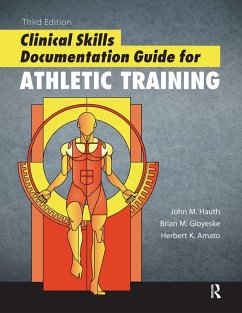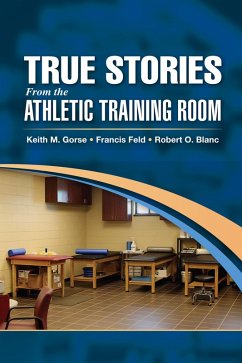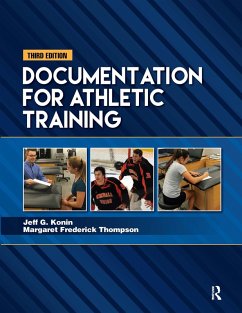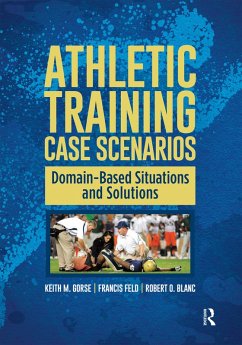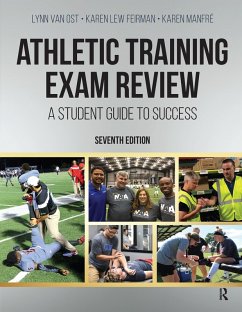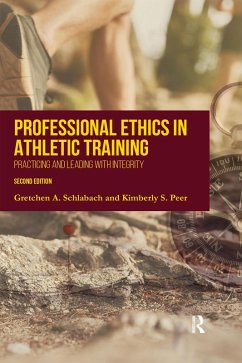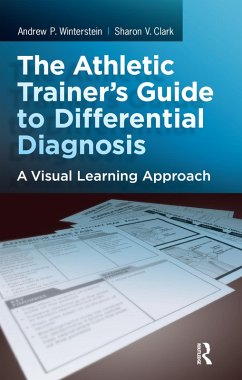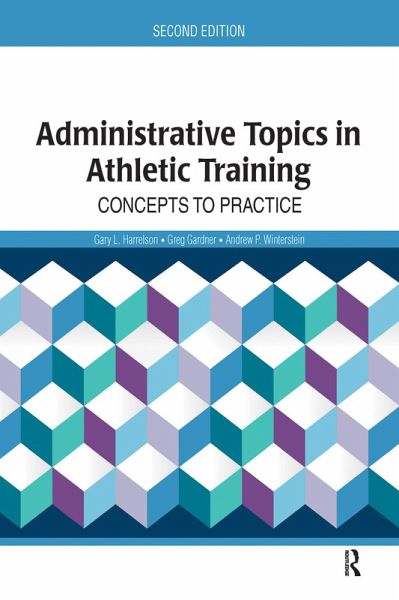
Administrative Topics in Athletic Training (eBook, PDF)
Concepts to Practice
Versandkostenfrei!
Sofort per Download lieferbar
84,95 €
inkl. MwSt.
Weitere Ausgaben:

PAYBACK Punkte
42 °P sammeln!
Administrative Topics in Athletic Training: Concepts to Practice, Second Edition continues to be a dynamic text that addresses important administrative issues, practices, and procedures, as well as fundamental concepts, strategies, and techniques related to the management of all aspects of an athletic training health care delivery system. Uniquely, this text balances theory and application around management, administration, and leadership for the athletic trainer in multiple practice settings.Inside the Second Edition, Drs. Gary Harrelson, Greg Gardner, and Andrew Winterstein feature case stud...
Administrative Topics in Athletic Training: Concepts to Practice, Second Edition continues to be a dynamic text that addresses important administrative issues, practices, and procedures, as well as fundamental concepts, strategies, and techniques related to the management of all aspects of an athletic training health care delivery system. Uniquely, this text balances theory and application around management, administration, and leadership for the athletic trainer in multiple practice settings.
Inside the Second Edition, Drs. Gary Harrelson, Greg Gardner, and Andrew Winterstein feature case studies and instructional activities, both within the text and instructor materials, to help athletic training students and clinicians understand and apply the concepts to "real world" scenarios. Numerous graphic elements such as boxes, callouts, tables, and illustrations are included throughout the text to enhance readability.
New and updated features to the Second Edition:
Updated topics inside the Second Edition:
Included with the text are online supplemental materials for faculty use in the classroom.
Administrative Topics in Athletic Training: Concepts to Practice, Second Edition provides beneficial information on administrative topics and will be a useful resource for athletic training students, practitioners, and any administrator responsible for supervision of athletic trainers and athletic training service programs.
Inside the Second Edition, Drs. Gary Harrelson, Greg Gardner, and Andrew Winterstein feature case studies and instructional activities, both within the text and instructor materials, to help athletic training students and clinicians understand and apply the concepts to "real world" scenarios. Numerous graphic elements such as boxes, callouts, tables, and illustrations are included throughout the text to enhance readability.
New and updated features to the Second Edition:
- Numerous case studies, examples, and classroom activities
- 12 appendices provide tools and examples to aid in the application of concepts and principles addressed in the text
- Each chapter uses an Advanced Organizer to aid the reader in chapter orientation
- All chapters have been updated to include changes in laws, regulations and practices
- Issues in educational and clinical settings are broken into different chapters
- Chapters have been grouped into three sections to improve flow of the text- Personal Practices, Athletic Training Practices and Organizational Practices
- Faculty will have access to an Instructor's Manual, PowerPoint slides, and Test Bank Questions
Updated topics inside the Second Edition:
- Use of social media
- Multiple generations in the workplace
- Time management and prioritization
- Process of writing a business plan
- Athletic training as a business
- Starting your own business
- Administrative models in educational settings
- Impact of degree transition in athletic training
- Guidelines for appropriate medical coverage in secondary school and university settings
- Expanding roles of Athletic Trainers in clinical settings
Included with the text are online supplemental materials for faculty use in the classroom.
Administrative Topics in Athletic Training: Concepts to Practice, Second Edition provides beneficial information on administrative topics and will be a useful resource for athletic training students, practitioners, and any administrator responsible for supervision of athletic trainers and athletic training service programs.
Dieser Download kann aus rechtlichen Gründen nur mit Rechnungsadresse in A, B, BG, CY, CZ, D, DK, EW, E, FIN, F, GR, HR, H, IRL, I, LT, L, LR, M, NL, PL, P, R, S, SLO, SK ausgeliefert werden.





